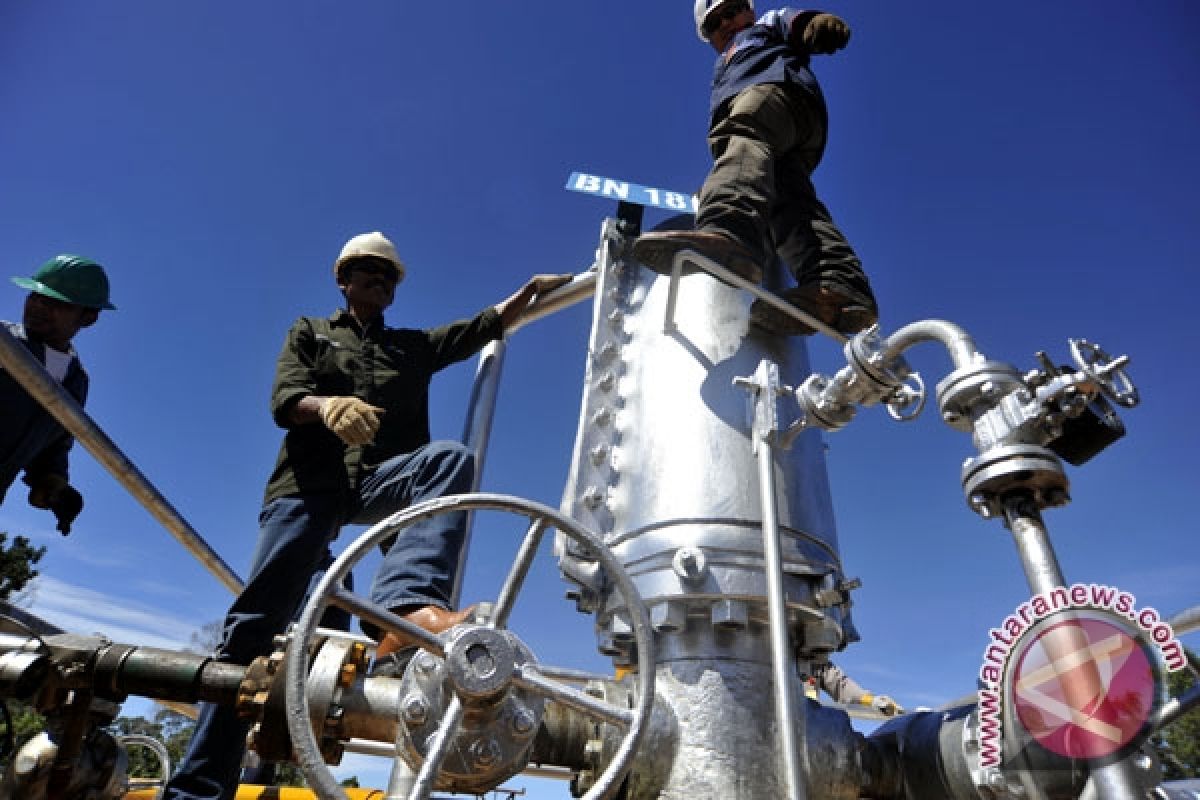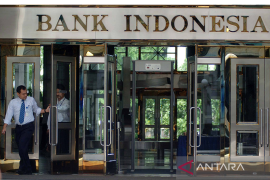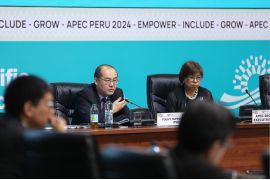The world price of crude has increased by US$18 per barrel in the past two weeks in New York market as a result of political crisis in Libya, and was feared to increase Indonesia`s oil subsidy budget and the prices of some food commodities.
But the Royal Bank of Scotland (RBS) Indonesia Country Executive Harry Naysmith said at an economic seminar here on Tuesday that the surge in world oil prices would not affect Indonesia`s economic growth in 2011.
"We believe in the prospects of Indonesia`s economic growth and are committed to helping our clients enter the local and international capital markets," Harry Naysmith said.
He said the Royal Bank of Scotland would continue to encourage and facilitate its clients to invest in Indonesia to achieve business growth targets.
In spite of the global oil price volatility, Harry said RBS believed that Indonesia`s gross domestic product (GDP) would continue to grow by 6.6 percent in 2011 because it was characterized by stronger domestic demand.
Meanwhile, RBS economist Lim Su Sian said Indonesia had a history of showing resilience in the face of rising oil prices.
"In 2008 when the oil prices were exorbitantly rising while rupiah was weakening, it was a proven fact that Indonesia was able to maintain its economic growth," Lim said.
Indonesia`s GDP growth in the 4th quarter of 2010 rose in six years by 6.9 percent at year on year basis, and consecutively reached 2.6 percent at quarter on quarter basis.
Interestingly, Lim said the contribution of net exports was larger than expected and was followed by increased consumption and investment.
Meanwhile, an observer at Danareksa Research Institute said here on Tuesday that there was no need to worry about the current surge in the world oil prices.
Purbaya Yudho Sadewa, economist at the institute, there was no need to worry about the oil price volatility because it was not to lead to an oil crisis like the one that happened years ago.
"In 2007 and 2008 the oil prices rose because of the transfer of the stock market to the commodity market that raised the prices of various commodities," Yudhi said.
He said the prices of commodities including oil at present were continuing to rise and had created crisis in several countries.
"But it is too early to equate the present oil prices with those in 2007 and 2008," Yudhi said.
According to him the world oil price hikes at present were due to the crisis in oil producing countries in the Middle East, and that the price position will depend on the situation in the Middle East.
Commenting on the impact of high oil prices on the 2011 budget, Yudhi said it would affect spending and cause an increase in state revenue.
He admitted that oil price increase would result in an increase in the 2011 state budget deficit but it would not be very high.
"If the oil prices continue to remain at $100 per barrel, there will be an additional deficit of about Rp31 trillion," he said, adding that the government had funds that could be allocated to cover an additional deficit if it happened.
However, the government would continue to monitor the movements of the global crude prices in the past couple of weeks as a result of political unrest in Libya.
Libya, which sits on the largest oil reserves in Africa, has been engulfed in a four-week rebellion as militants try to oust Gadhafi after 41 years in power.
Officials in the country say oil fields continue to operate, but daily exports of 1.5 million barrels could be cut off for some time.
Coordinating Minister for Economic Affairs Hatta Rajasa said on Monday that President Susilo Bambang Yudhoyono has asked relevant agencies to raise domestic crude oil output in response to the surge in global oil prices.
Hatta said the president has instructed him to to keep a watchful eye on rising world oil prices and to monitor the implications of the rising crude prices on the prices of other commodities.
"We have been asked to really control domestic inflation and maintain price stability. That is what we must do," he said.
In order to prevent the increasing world oil prices from affecting the subsidy budget, Hatta said, Indonesia`s crude oil production must be increased so as to reduce the need for imported oil.
Hatta said if the world crude price continued to rise, the government would in the second semester of this year discuss with the House of Representatives the possibility of increasing the fuel oil subsidy budget.
"If the assumed Indonesian crude price surpasses US$80 per barrel, there must also be an effort to economize the budget. The hike would possibly result in increasing the deficit and therefore we must increase the budget for subsidy," he said.
Meanwhile presidential spokesman Julian Aldrin Pasha said the head of state was quite concerned about the upside movement of global oil prices.
"Admittedly, the president is concerned about the latest oil prices and asked the coordinating minister for economic affairs to monitor the relatively high oil prices," he said.
Global oil prices rose US$18 a barrel in the New York market in the past couple of weeks and was feared to raise fuel subsidies in the 2011 state budget and put a further strain on the prices of several food commodities.
(Uu.O001/HAJM/F001)
Reporter: by Otniel Tamindael
Editor: Priyambodo RH
Copyright © ANTARA 2011












